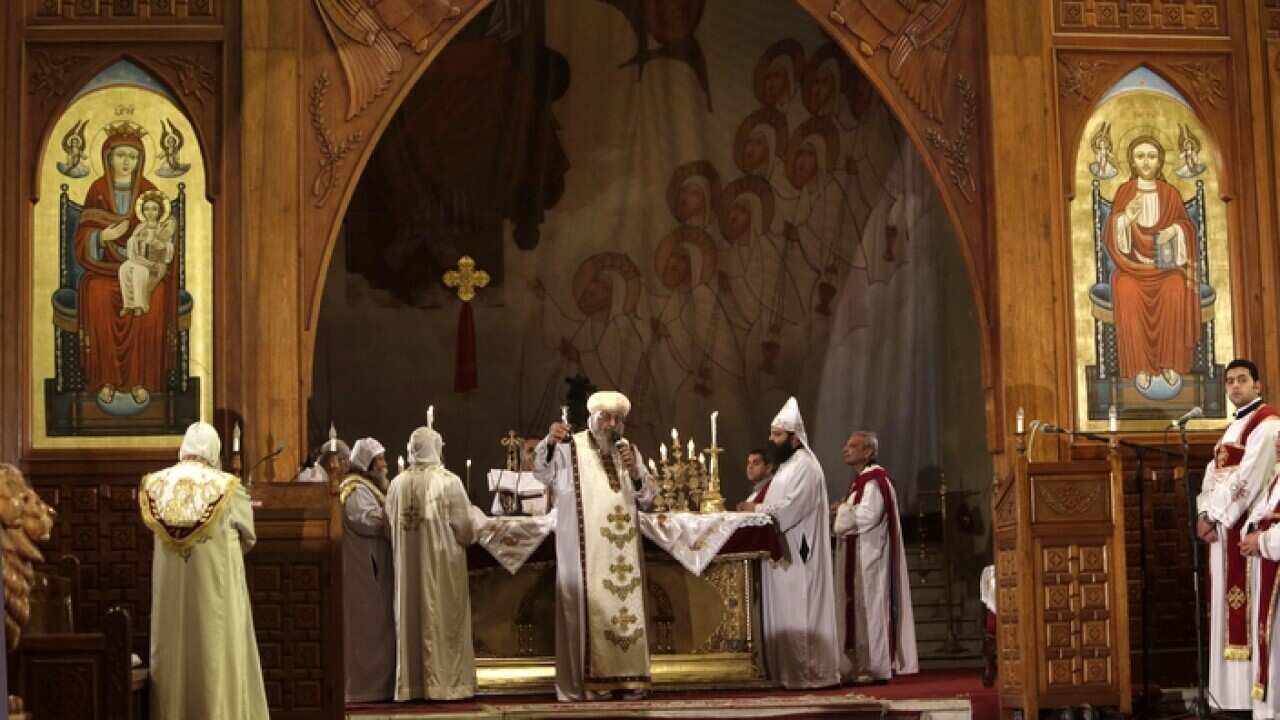(Transcript from World News Radio)
The United Nations Security Council is set to hold an urgent meeting to talk about Libya.
It follows the apparent execution of 21 Egyptian Christians there by IS militants.
The attack has heightened fears that the jihadist group, which is already active in Syria and Iraq, is spreading its influence further.
Phillippa Carisbrooke reports.
(SFX of church service)
Mass prayers at Cairo's Coptic Orthodox Cathedral.
The congregation in mourning for the 21 Coptic Christians believed killed by IS across the border in Libya.
(with translation) "May God comfort them. And give their parents, wives and young children patience. God is present."
(with translation) "We do not consider those who committed these acts as human beings. Even in the jungle there is respect for the law of the jungle. These people are not human. Because they can butcher a person in this manner."
Britain's Ambassador to Cairo, John Casson, attended the service.
Speaking afterwards, he said the world had to unite to launch a strong response to IS, which is also known as Daesh.
"It is very important that we all work together as a single world community to put an end to Daesh (IS) in Libya and everywhere else it exists and that means a very strong security response. And it means a strong political response."
Egypt, which launched retaliatory air strikes against the militants after video emerged apparently showing Egyptian Coptic Christians being beheaded, is calling for a UN resolution authorising an international coalition to intervene in Libya.
Egyptian Foreign Minister Sameh Shoukry has told Al Jazeera there must be a stronger international military effort against I-S.
"We have to open our eyes and really see the threat for what it is and not try to deal with this issue in any form of a duality of approach."
But in a statement, the United States, Italy, France, Britain, Spain and Germany have said a UN led process to establish a national unity government in Libya provides the best hope for confronting the country's violence and instability.
Opening a summit in Washington on preventing the spread of violent extremism, US Vice President Joe Biden has said force alone is not the answer.
"We're here today because we all understand that in dealing with violent extremism that we need answers that go beyond a military answer."
The White House, which is hosting the summit, has been criticised by some for not specifically focusing the meeting on combating Islamic extremism, or efforts to tackle IS.
Share

